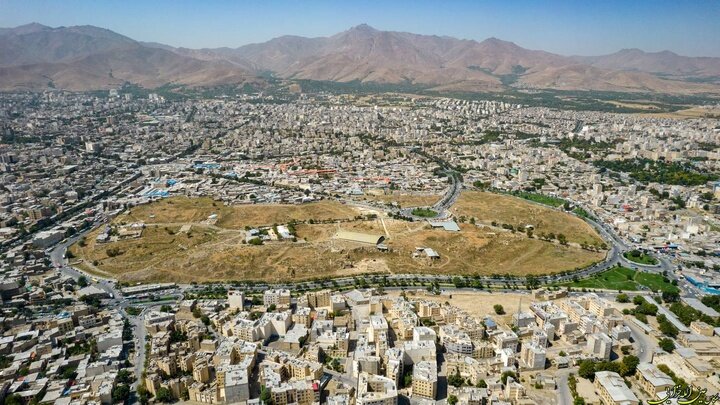Governor-general hails Hegmataneh UNESCO listing as a milestone for tourism

TEHRAN – Hamedan province’s Governor-General, Alireza Qasemi-Farzad, has praised the UNESCO World Heritage designation of Hegmataneh as a significant milestone in the province’s history and tourism sector.
Known to Western sources as Ecbatana, this ancient city was officially inscribed on the UNESCO World Heritage list on July 27, during the 46th session of the UNESCO World Heritage Committee in New Delhi, India.
The recognition of Ecbatana, which brought Iran its 28th UNESCO World Heritage label, highlights its immense historical and cultural importance.
Speaking with CHTN about this accomplishment, Qasemi-Farzad emphasized that the inscription marks a turning point for Hamedan, the city regarded as a “capital of history and civilization” in Iran.
“This registration is a turning point in the history and tourism of Hamedan.”
“Over the past three years, through special initiatives, relentless efforts, and collaboration with relevant executive bodies and urban management, we have been able to lay a suitable groundwork for this international recognition,” the official explained.
The governor-general underscored the pivotal role of Hegmataneh in the province’s tourism landscape, referring to it as “the wing of tourism in Hamedan province.”
Moreover, he highlighted the presence of over 1,900 historical, cultural, and tourism attractions in Hamedan that draw visitors to that province.
Qasemi-Farzad extended his gratitude to all parties involved in the successful bid for UNESCO recognition, including the Ministry of Cultural Heritage, Tourism and Handicrafts, the General Directorate of Cultural Heritage, Tourism and Handicrafts of the province, Hamedan’s Islamic City Council, urban management authorities, media personnel, the provincial police, business owners, and the people of Hamedan.
Ecbatana was the capital of the ancient Median Empire and later served as a significant city under the Achaemenid and Parthian empires. Located in present-day Hamedan, Iran, it is celebrated for its archeological treasures and as a testament to the region’s long-standing historical and cultural significance.
Located in the suburban area of modern Hamadan, Ecbatana spans approximately 50 acres, with its rich archaeological deposits offering a glimpse into millennia of human civilization. Despite its vast historical significance, large portions of the site remain unexplored, promising future discoveries that could further illuminate our understanding of ancient Iran.
AM
